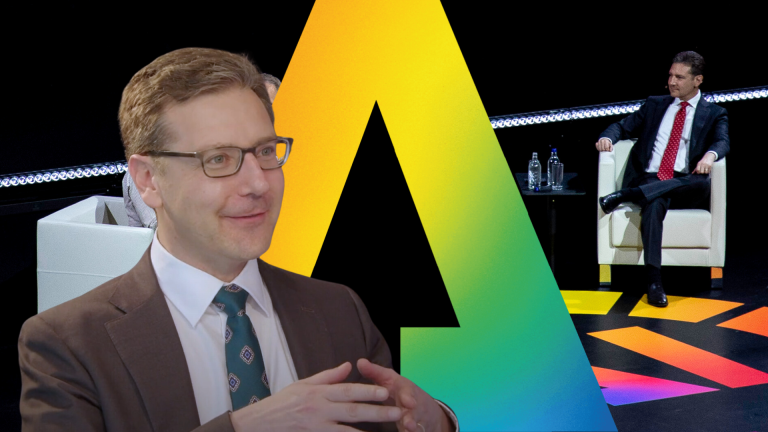Bridging the Divide: How to Close the Information Gap Between AI Innovators and Policymakers
‘Information Gap’ Between AI Creators and Policymakers Needs to be Resolved – Report
An article from the World Economic Forum (WEF) highlights a significant disconnect in understanding between AI developers and policymakers. The report, co-authored by Adriana Bora, an AI policy researcher, and David Alexandru Timis, explores how to bridge accountability and trust issues surrounding AI technology.
Bora and Timis argue that there is an urgent need for effective mechanisms to create a shared understanding of AI’s development and deployment processes. They assert that governance must be cultivated through ongoing dialogue, incorporating multi-stakeholder approaches along with diverse methodologies and expertise.
In simpler terms, both parties must reach a mutual understanding. However, while AI developers possess extensive knowledge, this understanding often does not extend to regulatory bodies. The authors note that there are relatively few policy experts with a comprehensive grasp of the AI technology cycle. Conversely, technology providers frequently lack the clarity and motivation to engage with integrity in shaping AI policies that incorporate ethical considerations.
Numerous instances of unethical AI practices underscore this concern. For example, in July, MIT apologized for using a dataset that trained AI models exhibiting misogynistic and racist biases. Additionally, both Google and Microsoft acknowledged issues with moderation errors in their services.
Concerns about artificial intelligence in law enforcement have also emerged. More than 1,000 researchers and experts signed an open letter in June challenging a paper claiming it could predict criminal behavior through automated facial recognition. In a related incident, the Chief of Detroit Police admitted that AI-powered facial recognition technology often fails to deliver accurate results.
Google faced backlash recently, particularly after the dismissal of Margaret Mitchell, a leader in the company’s ethical AI team. Following an internal investigation, it was revealed that her termination was tied to her transferring electronic files outside the company. Earlier, in December, Timnit Gebru, another prominent figure advocating for ethical AI, was let go under contentious circumstances. She asserted that her departure was related to criticism of Google’s practices and an unpublished paper. Mitchell had previously voiced concerns regarding Gebru’s dismissal, which led to other employees, including software engineer Vinesh Kannan and engineering director David Baker, leaving the company.
Bora and Timis stress the necessity for “ethics literacy” and commitment to interdisciplinary research from technology developers. They point out the lack of formal education around the complexities of human social systems in the training of AI developers, which hinders their ability to understand societal impacts and incorporate ethical dimensions in their designs.
Understanding the social and cultural contexts in which AI operates, particularly when high stakes are involved, requires time and dedication. The authors assert that with increased investment in AI, companies should actively identify relevant ethical considerations and transparently implement appropriate solutions prior to deployment. This strategy could mitigate the need for public retractions and apologies when models misbehave.
However, policymakers must also enhance their own understanding. Familiarizing themselves with the intricacies of AI is essential for crafting prudent regulations that balance legal and ethical concerns while harnessing the technology’s vast potential. Building knowledge is vital for effective governance in this swiftly evolving landscape.
Efforts are underway to establish smarter regulations for artificial intelligence. This initiative aims to facilitate constructive dialogue between policymakers and technology companies, creating a framework of ethics and standards that ensures AI can innovate responsibly. Significant strides have been made to address algorithmic bias. For instance, the Centre for Data Ethics and Innovation (CDEI) in the UK has released a comprehensive ‘roadmap’ aimed at tackling this critical issue. The report specifically addresses areas such as policing, recruitment, financial services, and local government, providing cross-cutting recommendations designed to enhance decision-making systems through improved algorithms.
For further insights, you can explore the complete article from WEF. Additionally, if you’re interested in hearing industry leaders discuss pressing topics like these, consider attending the upcoming co-located events: the 5G Expo, IoT Tech Expo, Blockchain Expo, AI & Big Data Expo, and Cyber Security & Cloud Expo World Series. These events will take place in notable locations including Silicon Valley, London, and Amsterdam.
NVIDIA is playing a pivotal role in positioning Germany at the forefront of Europe’s AI manufacturing sector. Moreover, advancements in MedTech AI, hardware, and clinical application programs continue to emerge, showcasing the potential of AI in transformative healthcare solutions. However, challenges persist, such as the ‘AI execution gap,’ where it is noted that 80% of AI projects fail to reach production. In educational news, teachers in England have received approval to integrate AI tools into their classrooms, signaling a growing acceptance of technology in educational settings.
The Role of Machine Learning in Enhancing Cloud-Native Container Security
Innovative Machine Learning Uses Transforming Business Applications
Machine learning continues to reshape business applications across various sectors. Its versatility allows companies to harness data efficiently, making it a must-have in modern business strategies.
AI and Bots Allegedly Used to Fraudulently Boost Music Streams
The use of AI technologies in music streaming has raised concerns about fraudulent activities. Allegations suggest that bots might be manipulating streams to create a false impression of popularity.
The Benefits of Partnering with Outsourced Developers
Collaborating with outsourced developers can provide significant advantages to businesses, especially in terms of scalability and access to specialized skills. This partnership can enhance overall productivity and efficiency.
Education, Legislation & Government
Teachers in England given the green-light to use AI
Artificial Intelligence
AI’s influence in the cryptocurrency industry
AGI, Artificial Intelligence, Companies, Development, Ethics & Society
Sam Altman, OpenAI: The superintelligence era has begun
Subscribe
Stay updated with all our premium content and the latest technology news delivered straight to your inbox.
Explore
About Us
- Contact Us
- Newsletter
- Privacy Policy
- Cookie Policy
Reach Our Audience
Advertise
- Contact Us
- Post a Press Release
Categories
- Applications
- Companies
- Deep & Reinforcement Learning
- Enterprise
- Ethics & Society
- Industries
- Legislation & Government
- Machine Learning
- Privacy
- Research
- Robotics
- Security
- Surveillance
- Sponsored Content
Other Publications
- Developer
- IoT News
- Edge Computing News
- MarketingTech
- CloudTech
- The Block
- Telecoms
- Sustainability News
- TechHQ
- TechWire Asia
AI News is part of TechForge
Here is a list of various countries and territories around the world:
- Martinique
- Mauritania
- Mauritius
- Mayotte
- Mexico
- Micronesia
- Moldova
- Monaco
- Mongolia
- Montenegro
- Montserrat
- Morocco
- Mozambique
- Myanmar
- Nambia
- Nauru
- Nepal
- Netherlands
- New Caledonia
- New Zealand
- Nicaragua
- Niger
- Nigeria
- Niue
- Norfolk Island
- North Macedonia
- Northern Mariana Islands
- Norway
- Oman
- Pakistan
- Palau
- Palestine, State of
- Panama
- Papua New Guinea
- Paraguay
- Peru
- Philippines
- Pitcairn
- Poland
- Portugal
- Puerto Rico
- Qatar
- Romania
- Russian Federation
- Rwanda
- Réunion
- Saint Barthélemy
- Saint Helena, Ascension and Tristan da Cunha
- Saint Kitts and Nevis
- Saint Lucia
- Saint Martin
- Saint Pierre and Miquelon
- Saint Vincent and the Grenadines
- Samoa
- San Marino
- Sao Tome and Principe
- Saudi Arabia
- Senegal
- Serbia
- Seychelles
- Sierra Leone
- Singapore
- Sint Maarten
- Slovakia
- Slovenia
- Solomon Islands
- Somalia
- South Africa
- South Georgia and the South Sandwich Islands
- South Sudan
- Spain
- Sri Lanka
- Sudan
- Suriname
- Svalbard and Jan Mayen
- Sweden
- Switzerland
- Syria Arab Republic
- Taiwan
- Tajikistan
- Tanzania, the United Republic of
- Thailand
- Timor-Leste
- Togo
- Tokelau
- Tonga
- Trinidad and Tobago
- Tunisia
- Turkmenistan
- Turks and Caicos Islands
- Tuvalu
- Türkiye
- US Minor Outlying Islands
- Uganda
- Ukraine
- United Arab Emirates
- United Kingdom
- United States
- Uruguay
- Uzbekistan
- Vanuatu
- Venezuela
- Viet Nam
- Virgin Islands, British
- Virgin Islands, U.S.
- Wallis and Futuna
- Western Sahara
- Yemen
- Zambia
- Zimbabwe
- Åland Islands






